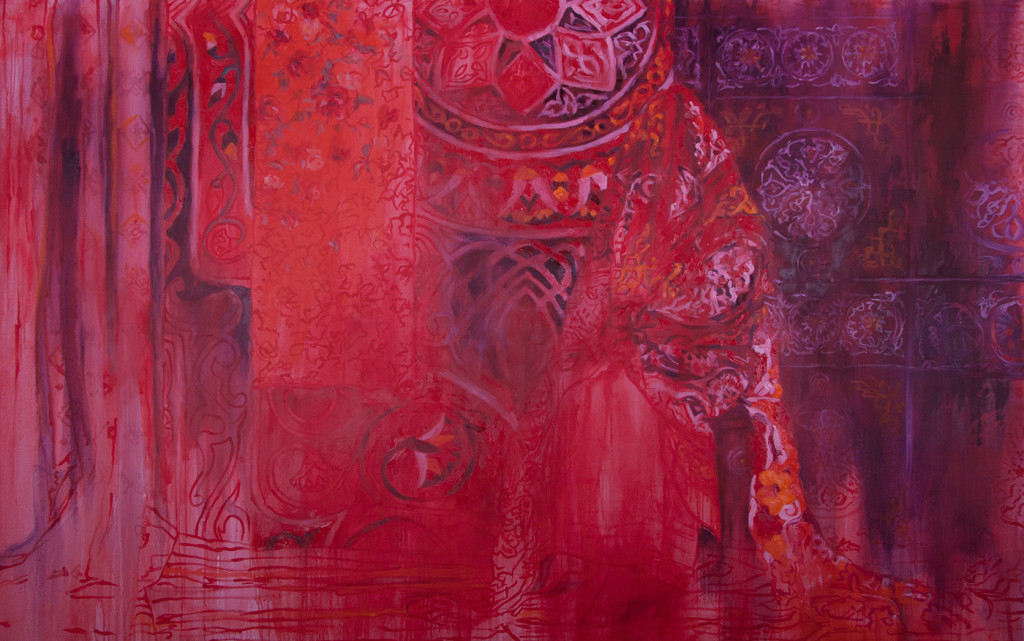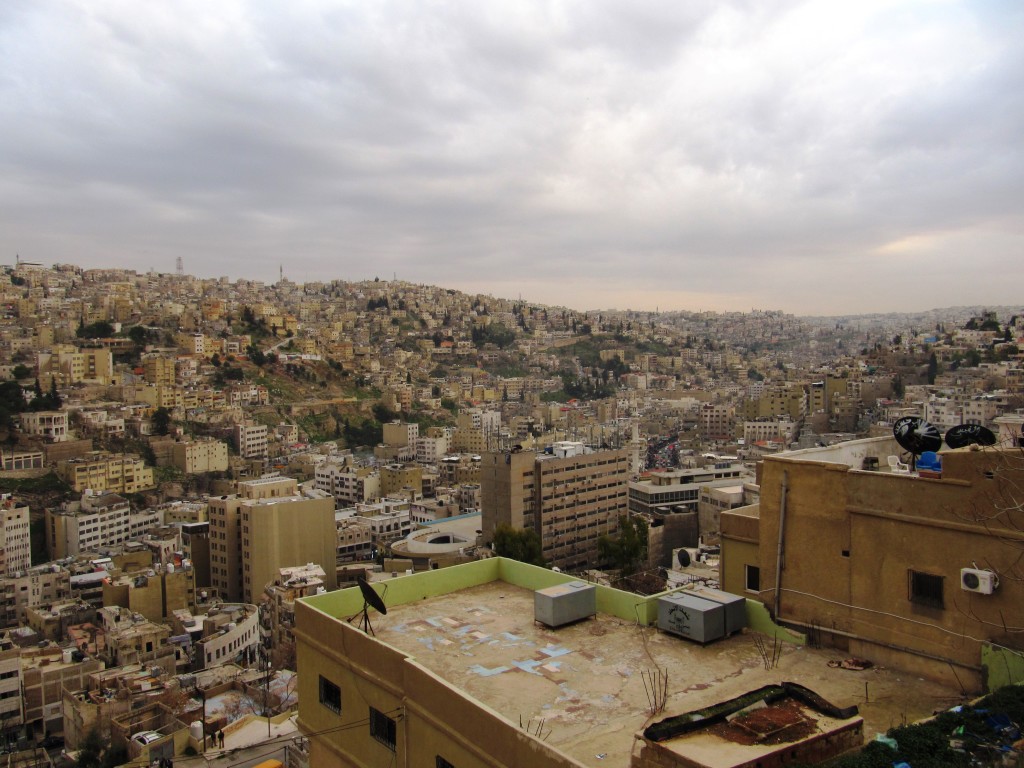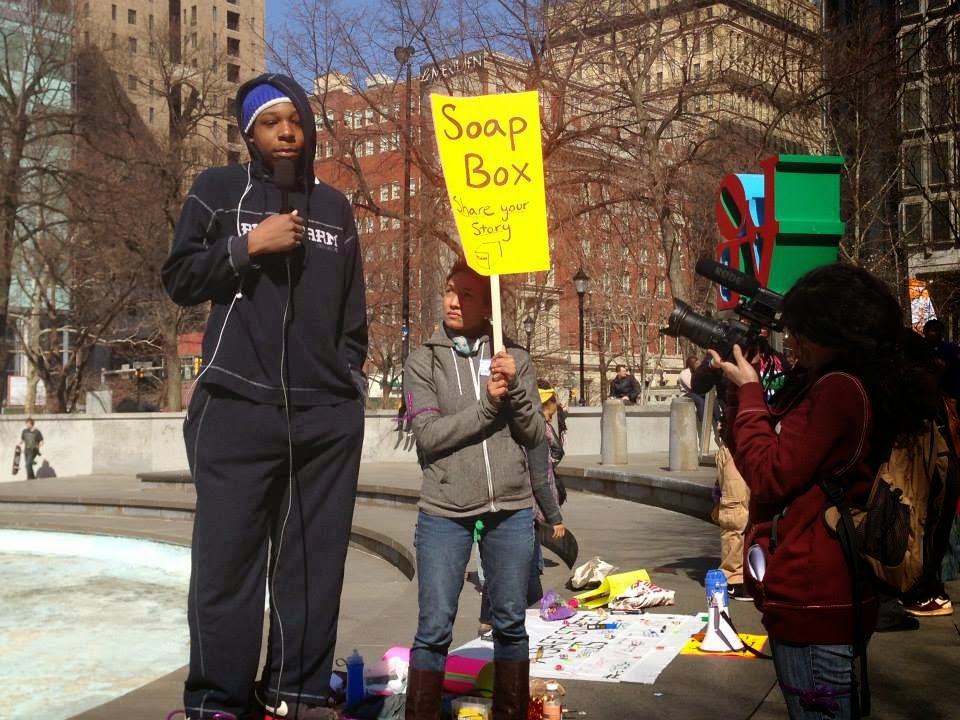BBC, “No woman ever turned down a barking guy? Right?”
“Women are using the hashtag #NoWomanEver to humorously highlight their not-so-funny experiences of wolf whistles, sexual comments from passing strangers and other street harassment.
Although the hashtag isn’t entirely new it’s been used more than 140,000 times in the last couple of days after an American social media user called Miss Black Awareness revived it to sarcastically applaud the actions of a man whose unwanted advances she had seemingly recently suffered.”
The Guardian, “Brazil and Argentina unite in protest against culture of sexual violence“
“While gender violence occurs worldwide, the problem has come to the fore in several countries in Latin America through the work of prominent feminist groups, many of which argue their region is particularly plagued by social insecurity and male-dominated traditions.”
The Guardian, “Jordan’s first self-defence centre for women boosts fight for rights”
“It started out as an ordinary day for Rasha Salih, a young woman who works as an accountant for a private trading company in the centre of Amman. Like most women in Jordan, she wears a headscarf and modest clothes when she goes out.
After a long day at work, the 26-year-old returned to her compound in the Shmeisani district at around 6pm and took the lift to her flat. A young man was already in the lift when she got in. He started to flirt with her, and before she knew it, he was trying to rip off her shirt. There was nowhere to escape, so Salih put her self-defence training to use by directing a few kicks to her attacker’s head and stomach.
She followed her attacker out on to the street when he tried to flee, and handed him over to the police. He was eventually sentenced to three years for attempted rape.
“I only recognised the value of self-defence training when I was struggling to escape at the hands of my attacker,” says Salih. “I felt I had a confidence that I hadn’t had before, I was able to overcome my fear and protect myself. It was an incredible feeling.”
Salih is one of more than 2,000 women who have been trained in self-defence at Amman’s SheFighter studio.”
International Business Times, “After Jo Cox’s tragic murder we need to stop ignoring death and rape threats to female MPs”
“We have created a widespread normalisation of the idea that women who dare to put their heads above the political parapet become legitimate targets for violent and sexual abuse; that they deserve to be silenced. Every time people have responded to death and rape threats and sexual abuse and harassment against female politicians by brushing it off, suggesting they should simply grow a thicker skin, or saying that it “comes with the territory,” they have incrementally contributed to the acceptance of such behaviour.
None of them has directly caused or condoned a physical attack like the one on Jo Cox. But that doesn’t mean that our attitudes towards the abuse of politicians, and in particular female politicians, don’t need to be urgently re-examined.”
Fusion, “A lot more NYC women are stepping forward to report sexual harassment on the subway”
“More New York City women are stepping forward to report what has been a longstanding problem on the subway: sexual harassment.
There have been 458 reported sex crimes, not including rape, in the subway through Monday, compared with 299 through the same period last year, NYPD Transit Chief Joseph Fox said in testimony before the Metropolitan Transportation Authority board. That’s a 53% increase, the Wall Street Journal reported Monday.
Fox attributed the jump to an increase in victims reporting the crimes rather than an actual uptick in offenses…
In 2014, the MTA set up a website where victims can report incidents.
If current rates continue, the subway system is on track to finish 2016 with about 900 violations, a 22% increase from last year. Fox said the annual numbers had hovered around 600 offenses. In 2014, there 621 and in 2013, there were 647.”
RT.com, “Majority of female Israeli MPs faced sexual harassment – survey”
“At least 28 out the Israeli parliament’s 32 female members have experienced sexual harassment or assault, and at least two of the cases took place in the Knesset building, a recent survey has found.
The survey carried out by Israeli Channel 2 encouraged the lawmakers to speak openly about the challenges they have faced in their everyday life and at work.”
The Telegraph, “Three in four urban women have experienced sexual harassment in worldwide ‘epidemic‘”
“Three in four women have been subjected to harassment and violence in cities across the world, according to new research by ActionAid UK, which described the situation as an “epidemic”.
On average, 40 per cent of women who took part in the YouGov poll in Brazil, India, Thailand and the UK, said that they had been groped in public – the incidents ranged from being followed to sexual abuse.
The research has been launched ahead of the charity’s International Safe Cities for Women Day, in a bid to tackle the urban violence that women and girls struggle with globally. In light of this, ActionAid is urging the UK to contribute at least £70 million from its existing aid budget to help protect vulnerable women over the next three years.”
The Guardian, “Jessica Valenti: my life as a ‘sex object’”
“When you catch a cold or a virus, your body has ways of letting you know that you are sick. But what diagnosis do you give to the shaking hands you get after a stranger whispers “pussy” in your ear on your way to work? What medicine can you take to stop being afraid that the cab driver is not actually taking you home? And what about those of us who walk through all this without feeling any of it – what does it say about the hoops our brain had to jump through to get to ambivalence? I don’t believe any of us walk away unscathed.”
Read an edited extract from Jessica Valenti’s memoir Sex Object, published by Harper Collins at £16.99. To order a copy for £12.99, go to the Guardian bookshop or call 0330 333 6846.
CBC News, “Skateboarders who stopped sex assault among Calgarians honoured for bravery at Chief’s Awards Gala”
“Four skateboarders received special recognition after they stepped in when a man was sexually assaulting a woman, scared him off, chased him down, and held him until police arrested him.”
CTV NewsVancouver, “Men suspected of attacking Good Samaritan on SkyTrain identified”
“Update: Three men suspected of attacking a Good Samaritan for intervening in sexual harassment on SkyTrain last week have been identified, according to police….
———
Previous story: Police are searching for three suspects who allegedly punched a Good Samaritan for telling them to quit harassing women on SkyTrain last week.
Transit Police said the trio of men boarded a train at Sperling Station around 11:20 p.m. Thursday and started making threatening comments to other passengers.
They told one woman they were going to “follow her home,” police said, and one of the suspects sat down beside another woman and “made jokes to his two friends about raping her.”
At that point, a Good Samaritan intervened and told him to leave her alone.
Police said the suspect became aggressive, swearing at the Good Samaritan and threatening to follow him off the train – which two of the suspects eventually did.
“At Lougheed Station, the man got off the train and was followed by two of the suspects who punched him in the face and upper body,” Transit Police said in a statement.
The assailants got back on the train, and the victim boarded another car to push the emergency strip and call for police.
One of the suspects found him and punched him in the face again before the trio ran away from the scene.”
Quartz, “Mayor Sadiq Khan has banned body-shaming ads from London’s transit system”
“In one of the first high-profile moves of his administration, London mayor Sadiq Khan announced on Monday (June 13) that body-shaming ads will no longer be allowed to appear on the city’s buses and underground trains.”
Mic, “This Agoraphobic Woman Had the Perfect Response to Street Harassment”
“‘Dear driver who yelled at me for taking a selfie on the sidewalk outside Trader Joe’s, I know what you thought you were seeing,’ Mae wrote. ‘Just a self-absorbed, shallow millennial, documenting a mundane task for no reason. ‘Stupid kid,’ you might have thought, ‘not every little thing has to be documented. Put your phone away and get on with your life.’ But here’s the thing. I also know what you were unable to see: I am agoraphobic.’
According to Mae, the driver yelled ‘nobody cares that you’re going to the fucking grocery store.’
But people did. Mae wrote she has not been out in public by herself for three years, due to her agoraphobia, and ‘even when going in public with loved ones, I can become wracked by anxiety, crippled by panic attacks where I could barely breathe or talk.’
‘This morning, alone in my apartment, I experienced a flash of strange courage,’ Mae continued. ‘For once, I didn’t wait around to see if it would stay … [going outside] felt powerful. I felt free.'”
Guardian, “For many women, metal is our home – so why don’t we feel safe at gigs?”
“That people like me, my friend or anyone else should have to avoid concerts for fear of sexual attack perpetuates the worst metal stereotypes, shuts out the genre’s diverse community and is contrary to the freedom that the music represents. Metal gigs offer us all the chance to release our aggression in a healthy way. But only with respect is this accomplished.”
Syracuse.com, “Downtown Syracuse accident caused by driver honking at woman: witnesses”
“A two-vehicle accident at North Salina and James streets this morning was caused by a man honking at a woman who was walking to work, witnesses said.
The man was driving a black Hyundai on Salina Street about 8:20 a..m. when he started honking at the woman, several witnesses said. The car then pulled out into the intersection and struck a pickup truck pulling a utility trailer, they said.
Minutes after the accident, the driver of the Hyundai lay nearly motionless in the road next to his car. Ambulances arrived within minutes and the man, who was conscious, was put on a stretcher.”
Medium.com, “The global street harassment myth that has to die”
“I recently realized that about ten years have passed since I took my first job in a women’s rights organization. I have learned many things over these years. Here is one of them: the oldest and most widely held myth about #streetharassment is that women’s choices about their clothing determines whether or not they are harassed.
This is especially infuriating to me because I have been harassed in rural Faryab (that is in Afghanistan) while wearing a long dress and a large scarf that covered not only my hair but also my shoulders and chest and I have been harassed in Washington, D.C. while wearing a big winter coat, work pants and high rain boots. Also infuriating is that in both instances when I spoke up against the disrespect, my clothing was blamed.
Here is why the myth that women’s clothing leads to harassment has to die….”
The Frisky, “Ryan Gosling Thinks “Women Are Better Than Men” And Dropped Some Truth Bombs About Inequality”
“Asked about the enormous crush the female sex collectively has on him, and how he’s arguably objectified by the same crowd of people who want society to stop objectifying them, Gosling responded:
‘It’s our time as men to be on the receiving end of the stick. I grew up with women so I’ve always been aware of it. When my mother and I walked to the grocery store, men would circle the block in cars. It was very, very scary, especially as a young boy. Very predatory — a hunt.’
As Game of Thrones’ Kit Harrington recently pointed out, attractive men in Hollywood face objectification (ogling at topless pictures of Channing Tatum, or Kit Harrington, or Ryan Gosling — we’re all guilty of it). But of course, it’s worth noting that while men who strip down are often celebrated, women who do same face no shortage of slut-shaming.
At any rate, Gosling makes the good point that the “unwanted fuss” made by “women and gay men,” which the Evening Standard asked him about, is pretty different from the “unwanted fuss” men make toward women, which, in many terrifying cases, can be street harassment or stalking.”


 For women in Amman, street harassment is a daily reality and, due to its prevalence, one to which many have grown de-sensitized. Though I still feel anger that it occurs, it’s frightening how easily I can brush off verbal and physical harassment and how little emotional impact it has on me now. Equally, I realize that life would be exhausting if I were to let every catcall, every grope, and every micro-aggression get to me.
For women in Amman, street harassment is a daily reality and, due to its prevalence, one to which many have grown de-sensitized. Though I still feel anger that it occurs, it’s frightening how easily I can brush off verbal and physical harassment and how little emotional impact it has on me now. Equally, I realize that life would be exhausting if I were to let every catcall, every grope, and every micro-aggression get to me.

